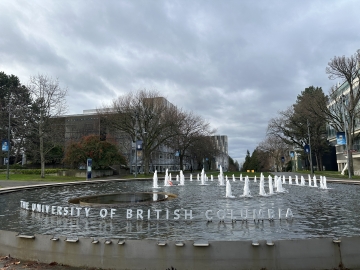The Center for Positive/Empirical Analysis of Political Economy (Top Global University project) at Waseda University invited Professor Luigi Curini (University of Milan), an expert on quantitative text analysis, to give a course on “Advanced Topics in Political Science: Polimetrics – Applied Scaling & Classification Techniques Using Text Data.”
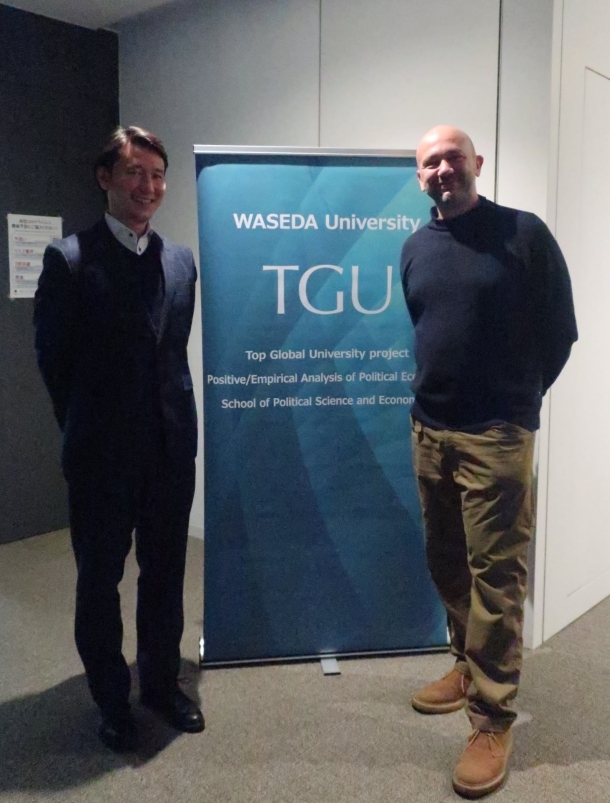
Left: Professor Airo Hino, Faculty of Political Science and Economics Right: Professor Luigi Curini, University of Milan
Since the 2015 academic year, soon after the start of this project, Professor Luigi Curini has offered the course every year to teach cutting-edge techniques in quantitative text analysis based on manifestos and SNS data as one of our excellent visiting faculty members.
This marks the eighth year for his course at Waseda, and classes were able to be held in-person for the first time in three years. Following the normal course, special workshops and a seminar for Waseda students were held in two days. Professor Luigi Curini was very friendly, passionate and sincere. Certainly, it was necessary for students to work hard to keep up with the course, but they could learn and develop the techniques needed thanks to his energetic work.
Syllabus Search - View Syllabus Information (waseda.jp)
Course Report on Advanced Topics in Political Science: Polimetrics – Applied Scaling & Classification Techniques Using Text Data
Seikai Yasutaka (Graduate School of Political Science M1)
In this course, students are introduced to various text analysis methods that allow you to draw inferences from large text collections and presented guidelines on how to utilize and validate methods for social scientific research. Since I am planning to conduct a text analysis using twitter data for my thesis, this was one of the courses I have been wanting to take since I enrolled in the master’s program. For anyone interested in analyzing text data but might be confused on where to start, I highly recommend taking this course.
Each class is divided into two parts, theory and lab. In the lab session, students are offered a “hands-on” experience using R and relevant packages like Quanteda. The professor guides us through each method from start to finish, and we apply what we learned by analyzing text (either text data provided in the course, or twitter data that we collect ourselves) for the weekly assignments. For this reason, it is recommended that you have prior experience with R or other programming languages. Due to it being a quarter semester-long course, it is relatively fast-paced as we move on to different models each week. However, the professor is always happy to answer questions at any time, so you do not have to worry about being left behind.
After taking this course, I now have a clearer idea of how I should implement text analysis into my research, and I am sure that the skills I learned in this course will be extremely useful even after graduation.
January 30, 2023 – Special workshop
1. First part (Theory): Moving beyond the bag-of-words approach: Word Embeddings
Introduction to word embedding (WE) techniques, focusing in particular on GloVe (Global VEctors of words)
2. Second part (Lab): How to implement Word Embeddings
Hands-on lab on how to fit a GloVe in R. A general knowledge of R (in particular of the Quanteda package) would be useful, as well as a general familiarity with machine learning algorithms.
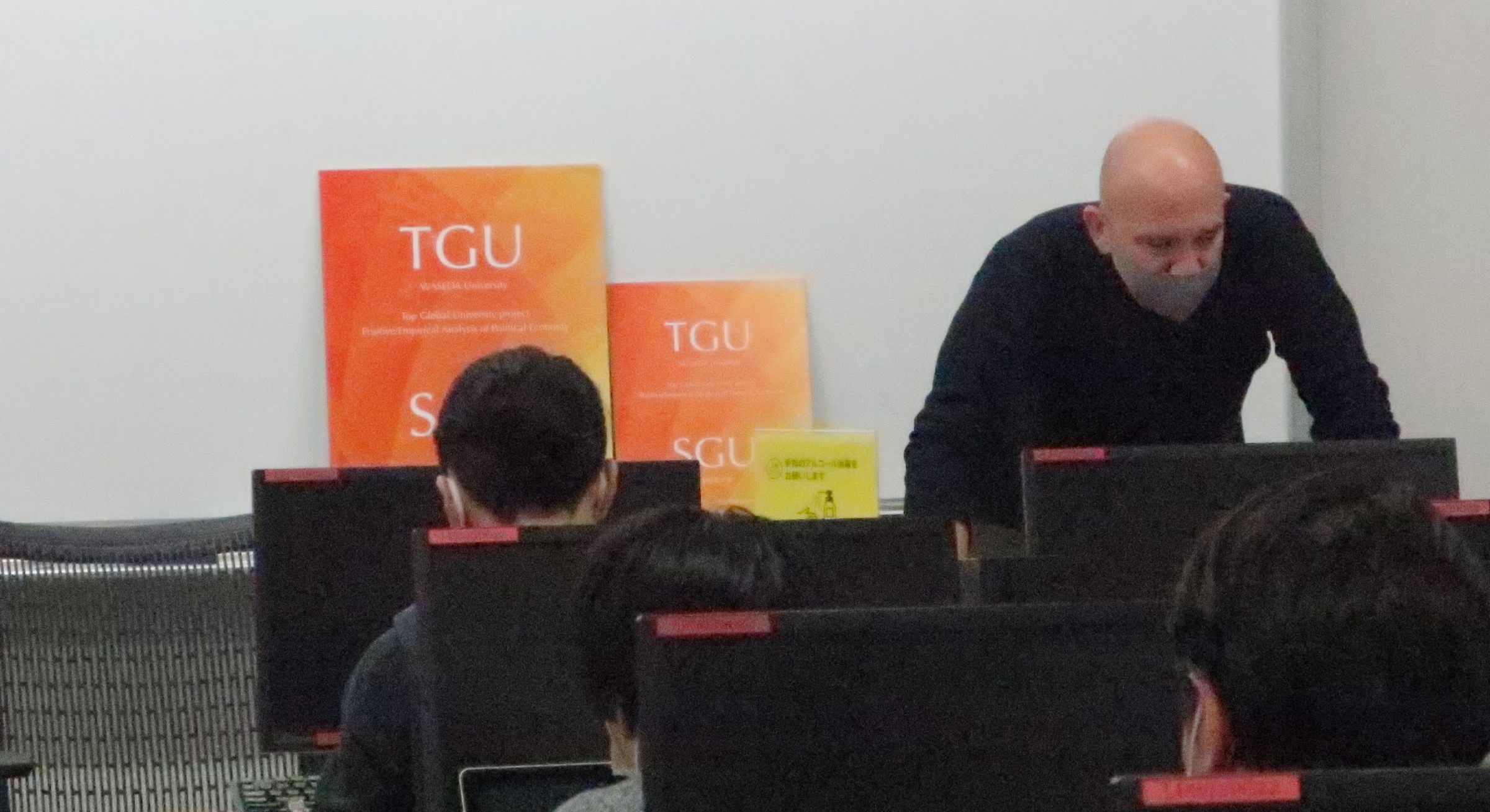
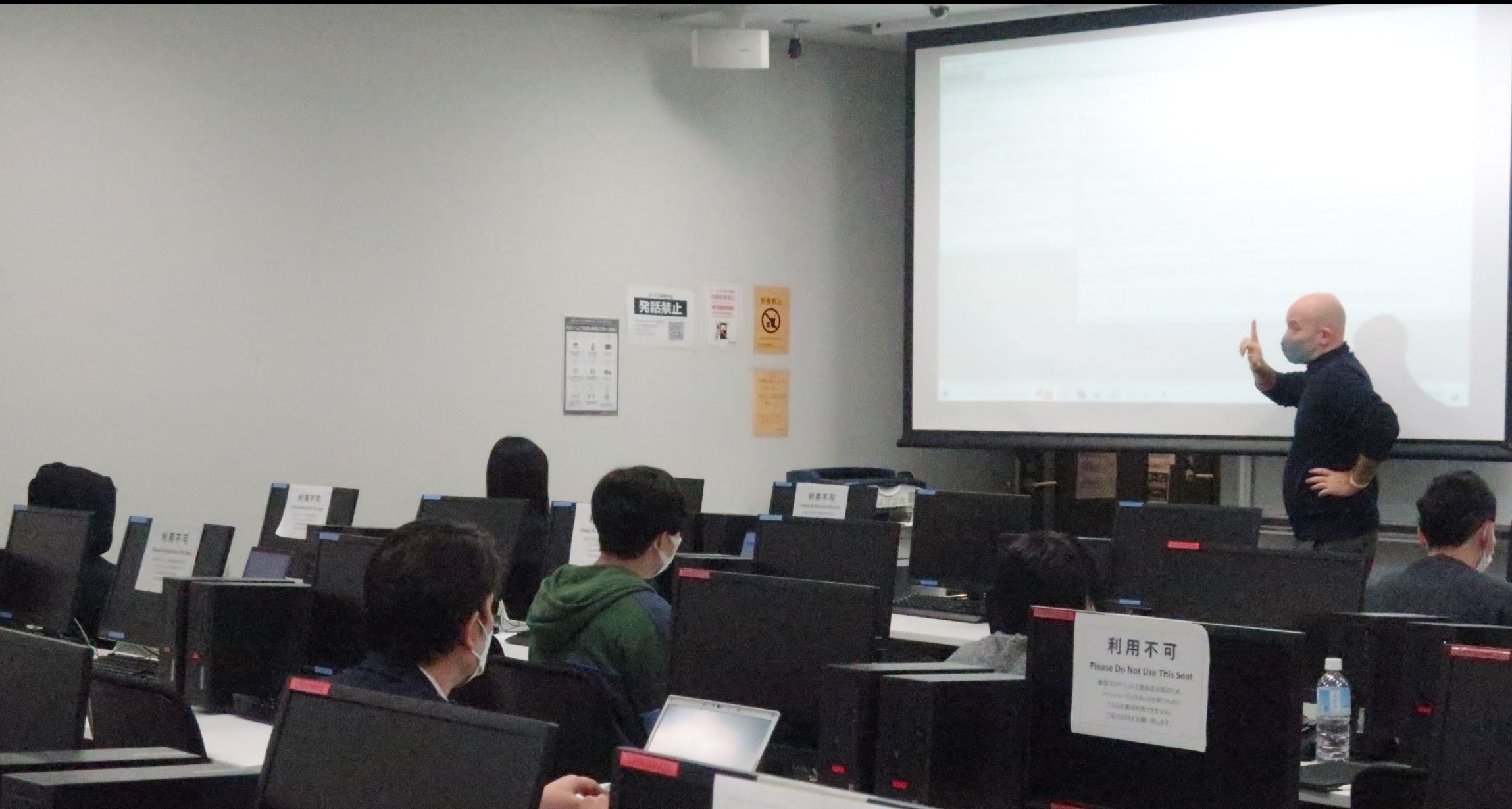
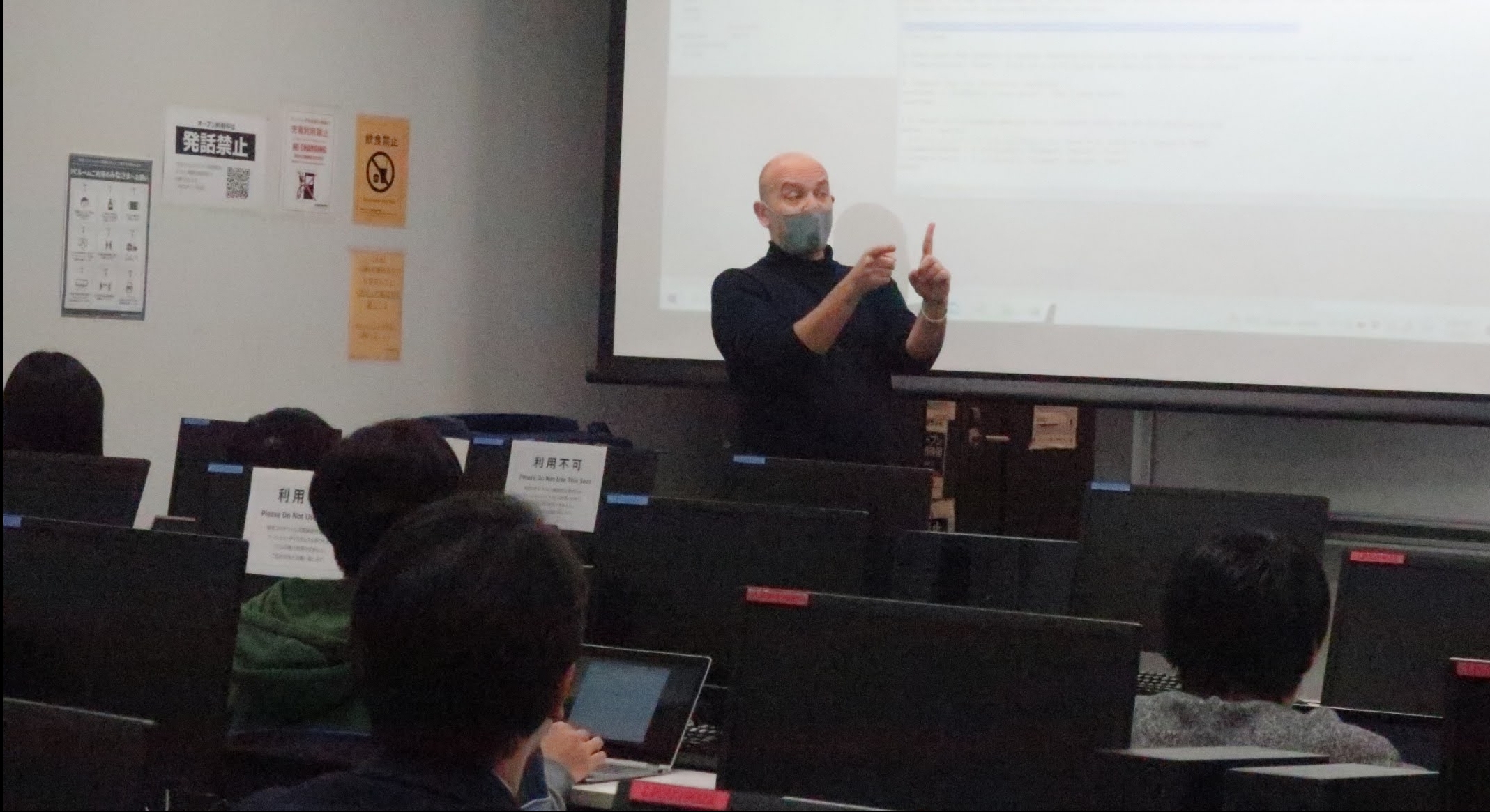
Special Workshop Report
Seikai Yasutaka (Graduate School of Political Science M1)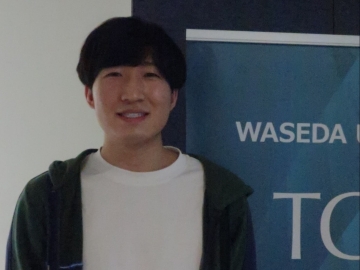
In this workshop, prof. Curini introduced us to word embedding (WE) techniques, focusing primarily on one of the methods called GloVe (Global Vector of Words). This is a relatively newer method of analyzing text, as the Bag-of-words (BoW) approach was the mainstream method when dealing with text data. The BoW approach ignored the context of words in the text, which meant that this information was lost in the process of analysis. The WE approach however, allows us to keep the context in which a word appears by focusing on how frequently a word occurs with another word within a set window.
The way the WE approach attempts to garner a word’s meaning from its contextual information sort of reminds me of how I would guess the meaning of a word that I do not know. Whenever I encounter an unfamiliar word, I would always look at the words surrounding it, the sentence in which it is used, and the passage itself to gather contextual information that I use to estimate its meaning. Because of this, it was fascinating to see how a similar concept could be implemented in textual analysis, and how they provide useful information that would otherwise be unobtainable in other methods.
WE is a technique that has risen in popularity in recent years, so it was a great opportunity for me to become familiar with it so that I can include it in my research. As each technique has its own drawbacks, I felt that it is important to be capable of utilizing different methods of analysis so that I can choose accordingly to the type of text data and research.
January 31, 2023 – Seminar
“Covid Policy Diffusion among OECD Countries: when it happened, and when it did not”
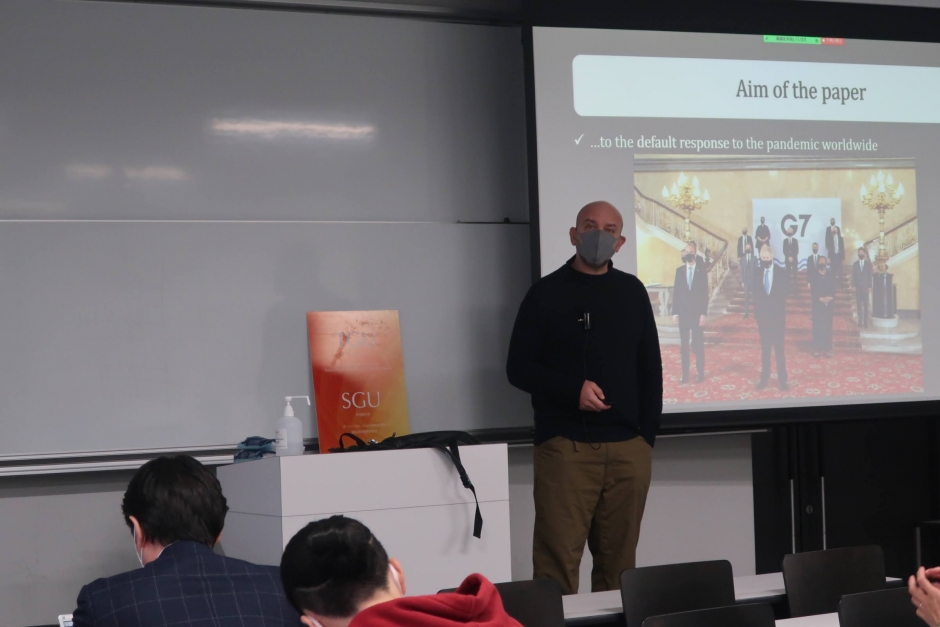
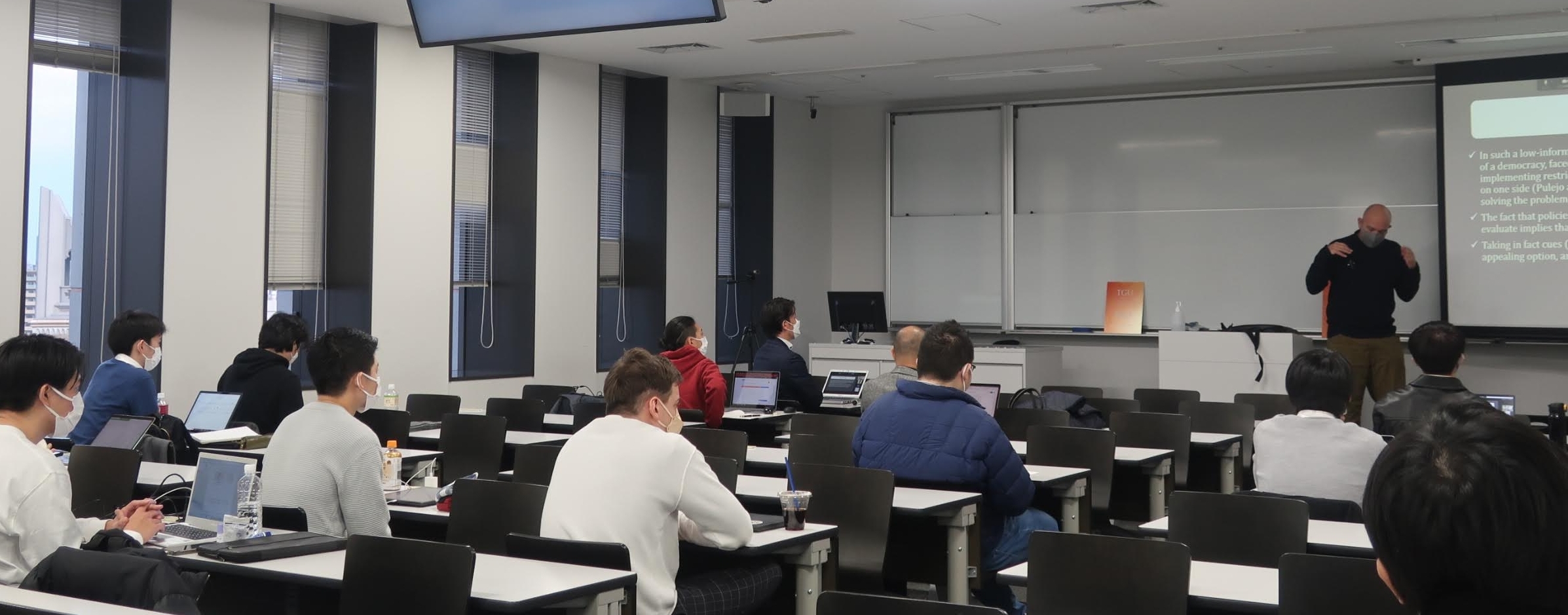
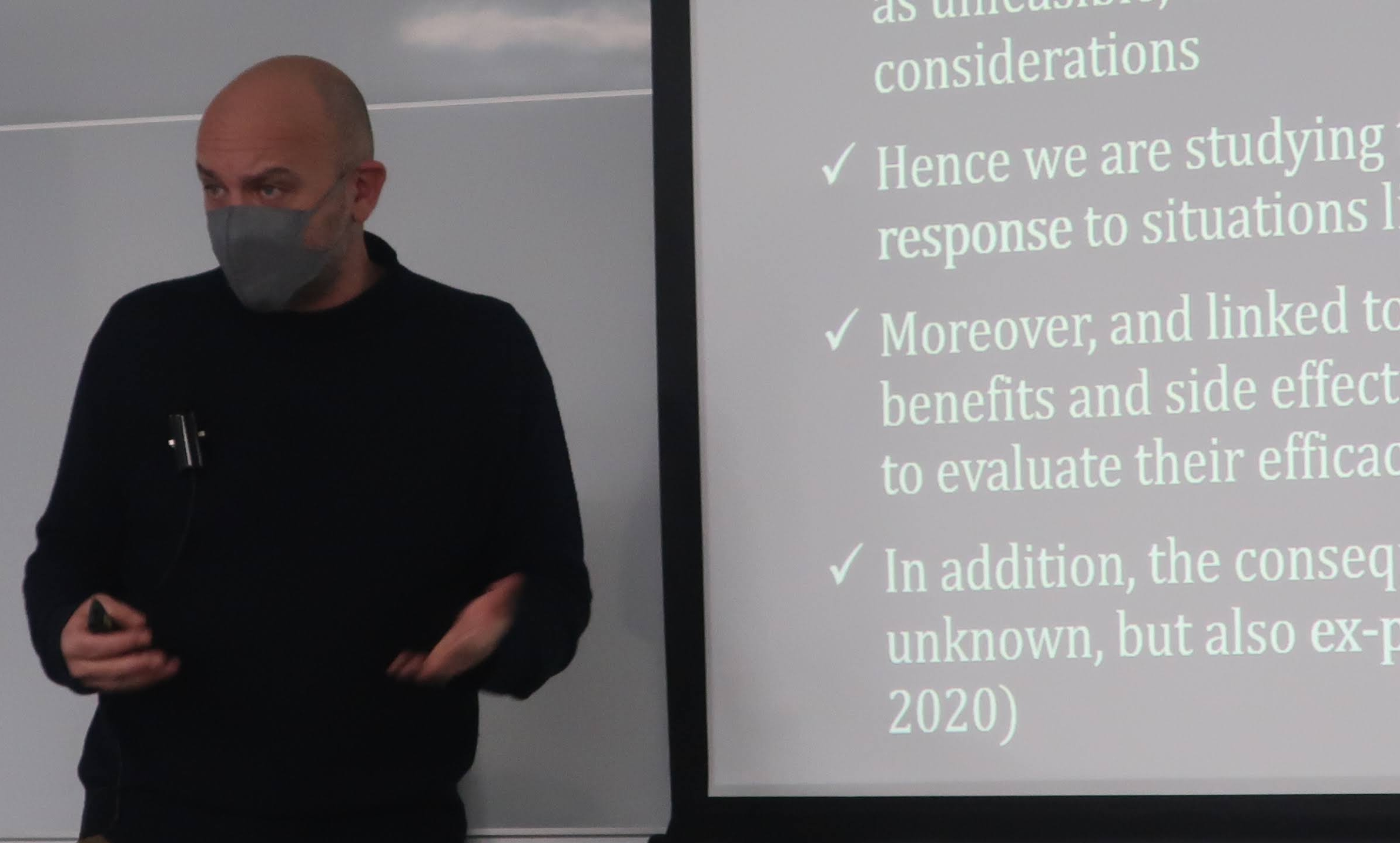
Seminar Report
Kazuki Kasuya (Graduate School of Political Science M2)
This seminar was given by Professor Luigi of the University of Milan, Italy, who has long been giving lectures on advanced text analysis as part of the Waseda University TGU project, teaching us in an easy-to-understand manner. This seminar was based on the contents of an ongoing working paper that empirically examines the cross-national diffusion of Covid-19 policies in OECD countries. The advantage of this study is that it empirically analyzes geographic relationships among countries using a spatial lag model, which is used in spatial econometrics, and that the results show that the diffusion effect of policies among countries is significant in a positive direction only when regulations are strengthened in other countries.


